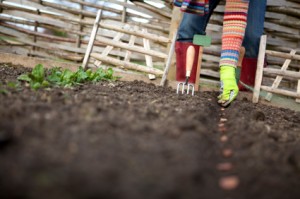Seeds are an invaluable commodity and hold the key to long term sustainability, and in some cases, survival. There are many theories floating around on the correct methods to store seeds for long term use. Knowing how to properly store seeds will ensure their viability for when they are needed the most.
Seeds are Alive
Seeds are a living thing and should in all the sense of the word be treated that way. Seeds are dormant until they are introduced to natural elements such as oxygen, moisture, sunlight and warmth that create a growth reaction. Keeping these elements away from the seeds will prolong their longevity. Since seeds are alive, they can be stressed out and damaged when subjected to extreme temperature shifts.
The USDA [1] states that if seeds are stored at optimum conditions, they can last for hundreds, maybe thousands of years. Over time, seeds can succumb to the aging process and begin to lose their vigor. It should be emphasized that if a person is purchasing seeds for long term sustainability, then the seeds purchased should be non-hybrid (non-GMO) and heirloom quality. These types of seeds will produce fertile seeds that can be stored and the risk of aging seeds is diminished. Typically, larger seeds such as beans and corn have a longer longevity compared to smaller seeds.
Seed Storage Methods
Seeds should be stored in an airtight container where the natural elements cannot effect them. Many people use their refrigerators, freezers and basements as a storage facility for seeds. Keeping seeds at room temperature will cause the embryo to consume its stored sugars within the seed casing and will either get too weak to germinate or die altogether. Seed packets typically have a “use by” date. Once the seed packet is opened, the seeds should be used that season.
- Freezing the Seeds – Freezing seeds will put the embryo into suspended animation reducing its need to consume the sugars that are encased in the seed. This increases it’s storage life immensely. If the seeds are frozen, they should sit at room temperature for a few days before they are planted. This is the preferred method of seed storage by leading farmers and agriculturalists.
- Refrigerating the Seeds – Storing seeds in the refrigerator is another method of prolonging seeds lifespans. Some put the seeds in a zip-loc bag than then place it in a brown bag so that light cannot permiate through to the seeds. Another method is to use a smaller zip-loc bag, add the seeds and close them up. Get a larger zip-loc bag and place a moisture absorbing material such as dry milk or dry rice to the main large zip-loc bag and then add the smaller bags containing the seeds. Use large bubble mailer to store the large zip-loc bag into and place it in the upper back of the refrigerator and use rubber bands to keep the bubble mailer sealed.
- Vacuum Sealing Seeds – Many believe that vacuum sealing the seeds is the best course for long term seed storage. However, some believe this method would harm the seeds due to the absence of the oxygen the seeds need to stay alive. Vacuum sealing does extend the life of the seeds by keeping out the natural elements such as excessive moisture and oxygen. If a person lives in a climate where there is high humidity, then this method would be the preferable one. Storing the seeds in a mylar bag or in a dark container where sunlight and moisture cannot get to it is ideal.
- Paper Envelope Storage – Storing seeds in paper envelopes and then storing them in waterproof containers with gasketed lids or in mason jars is another preferred storage method. One can add desiccant (a substance that removes moisture from the air) to ensure the seeds are not exposed to moisture. Using aluminum coated plastic bags in lieu of the paper envelope can also be used. The seeds should be stored away from sunlight in a cool, dark area such as a refrigerator or dark room.
